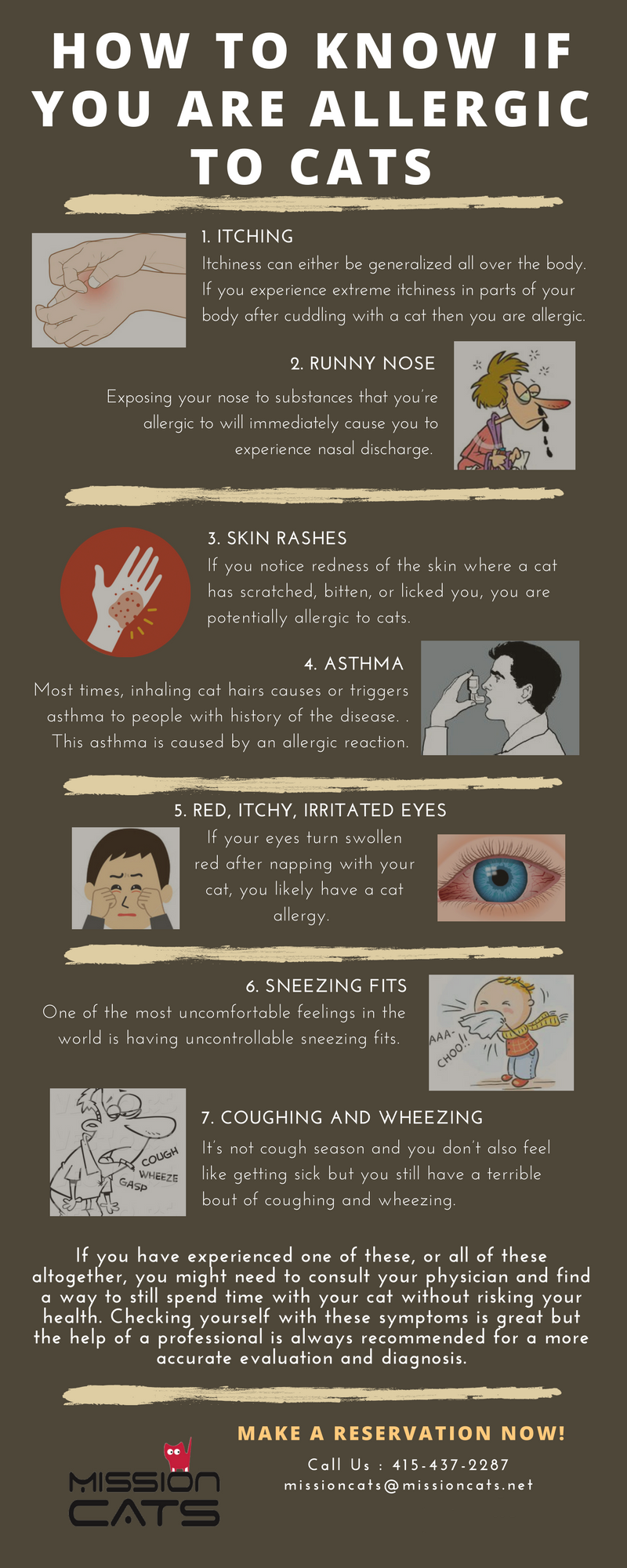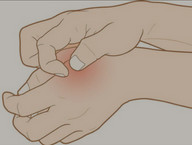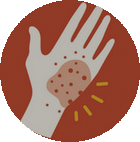Probably one of the most heartbreaking things in this world is to get hurt by the very thing you love. For example, you love cats but you’re allergic to them. Truly devastating and heartbreaking, isn’t it?
Cat owners usually don’t know that they’re allergic to their furry babies until they get to live with them, especially those who usually keep their cat in any cat hotel or have them do some cat sitting. As someone who would like to own a cat one day, you should know if you’re allergic to them or not first so you can find any possible alternatives that would still have you and your favorite kitty together. Besides, the symptoms of a cat allergy might develop in just a few minutes or take hours to appear.

Things that you need to know if you are allergic to cats.

1. Itching
Itchiness can either be generalized all over the body or centralized to just to one small region or spot. If you experience extreme itchiness in parts of your body after cuddling with a cat – and not just a simple itch but a severe one – then you are allergic to your feline. Most especially if you have no prior record of being allergic to something else, or a disease as serious as kidney failure or diabetes. Also double check if you weren’t bitten by insects or has a dry skin. If all these aren’t present in you, then you definitely are allergic to cats.

2. Runny nose
Exposing your nose to substances that you’re allergic to will immediately cause you to experience nasal discharge. So if you get this reaction right after playing with your cat, chances are, you’re allergic to them. The things that causes allergies in your cats are called allergens. These could be caused by the dust present in your pet’s hair, or the grasses which they rolled onto before giving you furry hugs. Your body will react to these allergens as though they were harmful bacteria thus causing your nose to run uncontrollably.

3. Skin rashes
If you notice redness of the skin where a cat has scratched, bitten, or licked you, you are potentially allergic to cats. We’re talking about a noticeable change in the texture or color of your skin here. It may cause your skin to become scaly, bumpy, itchy, or irritated. This happens when you come into contact with a direct allergen that causes your reaction. These rashes may stay long and can cause uncomfortable swelling and inflamed portions of your skin.

4. Asthma
Most times, inhaling cat hairs causes or triggers asthma to people with history of the disease. For people who don’t have asthma but are likely to have it when in contact with a cat probably has allergic asthma. This asthma is caused by an allergic reaction. You may start feeling the symptoms after inhaling an allergen such as cat hair or dust found in your cat’s skin. The thing is, even after giving your cat a bath and remove all the dirt and dust in his body, you might still have an allergic reaction to it because of the fur present in the cat.

5. Red, itchy, irritated eyes
If your eyes turn swollen red after napping with your cat, you likely have a cat allergy. A cat allergy can contribute to constant allergy symptoms, as exposure can occur at work, school, and day care or in other indoor environments, even if a cat is not present. Having red, teary eyes don’t mean you’re being emotional because you get to spend time with your cat. It actually means you have to do something about it because your allergy might get worse.

6. Sneezing fits
One of the most uncomfortable feelings in the world is having uncontrollable sneezing fits. If you don’t get that often but is triggered when you’ve come into contact with a cat, then without a doubt, you are allergic to cats. This is a neurological phenomenon that begins by an irritation or other stimulation of nerves in the nose, sinuses or face. That is why the sneeze may be triggered by nasal congestion of the cat’s hair.

7. Coughing and wheezing
It’s not cough season and you don’t also feel like getting sick but you still have a terrible bout of coughing and wheezing. The last thing you remember before this occurred is that you were playing with cats. Now, there’s the culprit. This situation only proves that you are allergic to your furry playmates. This happens because the inflammation of the airways causes them to narrow and secrete thick mucus, or phlegm, which clogs the small airways, causing the characteristic cough of bronchitis, wheezing, and shortness of breath. The cough may produce sputum, which is phlegm coughed up from the lungs.
If you have experienced one of these, or all of these altogether, you might need to consult your physician and find a way to still spend time with your cat – or own a cat, for that matter – without risking your health. Checking yourself with these symptoms is great but the help of a professional is always recommended for a more accurate evaluation and diagnosis.
















